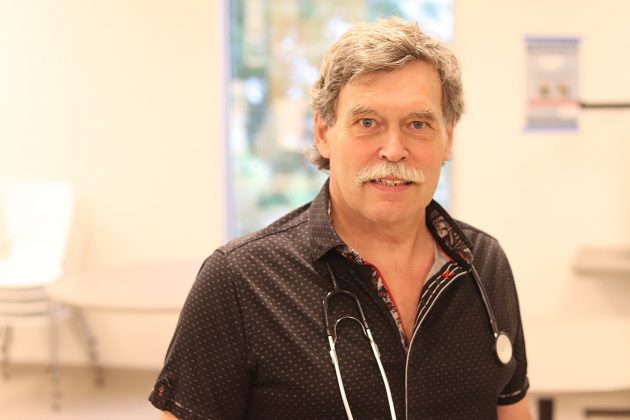
Old drug, new therapy
by CM Staff
RI-MUHC-sponsored phase III clinical trial ready to test repurposed dapsone to tone down lung inflammation caused by COVID-19

Dr.Jean Bourbeau, respirologist at the McGill University Health Centre (MUHC), senior researcher at the Research Institute of the MUHC, and professor at McGill University (PHOTO: McGill University Health Centre)
MONTREAL — In the fall, a large phase III randomized clinical trial sponsored by the Research Institute of the McGill University Health Centre (RI-MUHC) could start testing the efficacy of a reformulated generic drug in COVID-19 positive outpatients to mitigate severe pulmonary inflammation caused by the SARS-CoV-2 virus and consequently, to reduce hospital admissions.
Dapsone is a decades-old oral antibacterial that has well-recognized anti-inflammatory and immuno-modulatory properties used against malaria, lupus, HIV and many other inflammatory infections.
“While aggressive mitigation strategies are being implemented to slow the spread of SARS-CoV-2, we must also concentrate our efforts on developing and implementing scientifically sound drug candidates using high-quality randomized controlled trials,” said Jean Bourbeau, who is a senior researcher at the RI-MUHC, a respirologist at the McGill University Health Centre and the study’s principal investigator, in a statement. “Reformulating an existing drug has many advantages. The metabolic, pharmacokinetic and toxicological properties of dapsone have been well documented, so we understand its mechanism of action, how it’s absorbed by the body and how it might minimize the inflammatory process in the lungs and reduce COVID-19 complications that lead to hospital admissions, intubation, intensive care and mortality.”
Repurposing an existing drug for a new indication has the added benefit of allowing researchers to jump straight to phase III of a clinical trial and evaluate the efficacy and safety of the reformulation with minimal investment of time and money.
The Dapsone Coronavirus SARS-CoV-2 Trial (DAP-CORONA) COVID-19 study is a randomized, triple blind, placebo-controlled, parallel, multicentre trial which will evaluate the efficacy and safety of a new version of dapsone developed and patented by Pulmonem, a Canadian biotech start-up.
The repurposed drug will be administered at the early stages of the disease in symptomatic outpatient adults to tone down what is known as the cytokine storm triggered by COVID-19.
“Cytokines are proteins produced by white blood cells that help coordinate the body’s immune response. But sometimes, the immune system overreacts, and excessive levels of cytokines are released, resulting in hyperinflammation. Because of its anti-inflammatory, immunomodulatory and immune-suppressive properties, dapsone works on the adherence of immune cells called neutrophils to prevent the release of cytokines,” said Bourbeau. “By administering the drug as soon as symptoms start, we hope to attenuate the lung inflammation that is the most frequent cause of worsening symptoms and complications requiring hospitalization.”
The DAP-CORONA trial is slated to start in late September. Over 2 000 symptomatic outpatients — adults aged 70 and older and younger adults with at least one high-risk comorbidity — will be recruited in seven centres across Canada and the United States. The team of international researchers led by Bourbeau will use a novel platform to screen, get consent and monitor participants remotely for efficacy and safety. Results should be available before the end of 2020.
According to Bourbeau, immunomodulatory agents such as dapsone could be a significant advancement in COVID-19 therapeutics.
“With the need to prevent complications leading to hospital admissions and the absence of proven effective treatments for COVID-19 outpatients, showing that dapsone has a net clinical benefit should be a public health priority.”
This clinical research will be partially supported by the McGill University Health Centre Foundation.